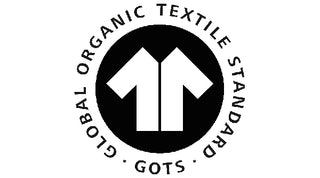
Grown Gift Card
FREE Shipping for all orders over €120 within Ireland
Item is in stock Only 0 left in stock Item is out of stock Item is unavailable
*Discounts calculated at checkout
From one ocean lover to another, make your friends and family happy with a GROWN gift card! Give that special someone the chance to get their favourite items from our collection of sustainable products.
- No expiration date
- Sent by email
- Varying amounts available
This gift card is not a physical card. An email with a link to the online gift card will be sent to you. It contains a code, which can be redeemed on our website during check-out.
From one ocean lover to another, make your friends and family happy with a GROWN gift card! Give that special someone the chance to get their favourite items from our collection of sustainable products.
- No expiration date
- Sent by email
- Varying amounts available
DOMESTIC POST
Standard €4.50
Express + Tracked €6.80
INTERNATIONAL POST
Standard Post €8.00
Express + Tracked €20.00
All domestic orders are sent by An Post and registered post for any orders over €100. All international orders are sent by registered post. A signature will be required to accept international delivery so we recommend you use a work delivery address or ensure someone is there to sign for the delivery. Delivery time to anywhere in Ireland is normally 3 to 5 days and for anywhere in the EU please allow up to 7 days to 10 for everywhere in the world else please allow 10 to 14 days.
You will be notified by email when your order leaves us and in the event of an item from your order being out of stock we will also notify you by email.
If for some reason you do not receive your order after the normal delivery times please contact us and we will provide you with a tracking number in order to locate the current location of your order.
Less water, less energy and zero toxic pesticides or chemicals. We only use organic cotton. Since 2015
Organic cotton is a type of cotton that is cultivated using natural seeds and grown without the aid of synthetic chemicals such as pesticides, insecticides, herbicides, and genetically modified organisms (GMOs). It is an environmentally-friendly alternative to conventional cotton farming methods, which rely heavily on the use of these synthetic inputs.
One of the key aspects of organic cotton cultivation is the use of natural seeds. These seeds are not genetically modified or engineered in any way. Instead, they are derived from traditional and heirloom varieties of cotton that have been naturally bred over generations. By using natural seeds, organic cotton farmers ensure that their crops are free from genetically modified traits and retain their natural genetic diversity.
Another important characteristic of organic cotton farming is the absence of synthetic chemicals. Conventional cotton farming relies heavily on the use of pesticides, insecticides, and herbicides to control pests, diseases, and weeds. These chemical inputs can have detrimental effects on the environment, as well as on the health of farmers and workers who come into contact with them. Organic cotton farming, on the other hand, adopts alternative practices to manage pests and weeds, such as crop rotation, biological pest control, and the use of natural pesticides derived from plant extracts.
By avoiding the use of synthetic chemicals, organic cotton cultivation promotes biodiversity and supports a healthier ecosystem. It reduces soil and water pollution, protects beneficial insects and pollinators, and minimizes the risk of chemical residues in the final cotton fiber. This makes organic cotton a more sustainable and eco-friendly choice compared to conventional cotton.
Additionally, organic cotton farming often embraces sustainable agricultural practices. These may include soil conservation techniques, water management strategies, and the use of organic fertilizers to maintain soil fertility and reduce the reliance on external inputs. These practices help preserve natural resources, reduce greenhouse gas emissions, and mitigate the negative impact of cotton farming on climate change.
Organic cotton has gained popularity in the textile industry as an ethical and sustainable alternative to conventional cotton. It is used to produce a wide range of products, including clothing, bedding, towels, and personal care items. Choosing organic cotton products not only supports environmentally responsible farming practices but also contributes to a healthier and safer working environment for farmers and workers involved in the cotton supply chain.
When it comes to mailing out our products, we have adopted 100% recycled Kraft paper mailers.
We're committed to reducing our environmental impact, especially when it comes to our shipping process. That's why we have made a conscious decision to eliminate the use of poly bags or plastic altogether. Instead, we have implemented eco-friendly alternatives.
Our paper-based bags are the perfect sustainable, peel and seal alternative to single-use plastic poly bags. It keeps your garments free of dirt, dust, and moisture during transit.
Vela bags offer various sustainability benefits compared to single-use poly bags; they are curbside recyclable, FSC®certified, and directly fund ocean research and conservation programs through our “Sea the Difference” initiative.
When it comes to mailing out our products, we have adopted 100% recycled Kraft paper mailers. These mailers are crafted from post-consumer waste, such as recycled paper fibers. By utilizing these mailers, we contribute to the circular economy by closing the loop on materials and reducing the demand for virgin resources.
Overall, by eliminating the use of poly bags and plastic, and incorporating Vela bags, garment packaging, and recycled Kraft paper mailers, we strive to make our shipping process as sustainable as possible.
We believe that every step counts in minimizing our environmental footprint, and we are proud to offer eco-friendly shipping options to our customers.
Share
- Peter O C.Verified Buyer21 hours agoRated 5 out of 5 starsMystery box
Got a hoody and 2 t shirts in a mystery box. They are all great. Feel quality wear well.
Iv 2 t-shirt previously still holding their quality.
Was this helpful?








































